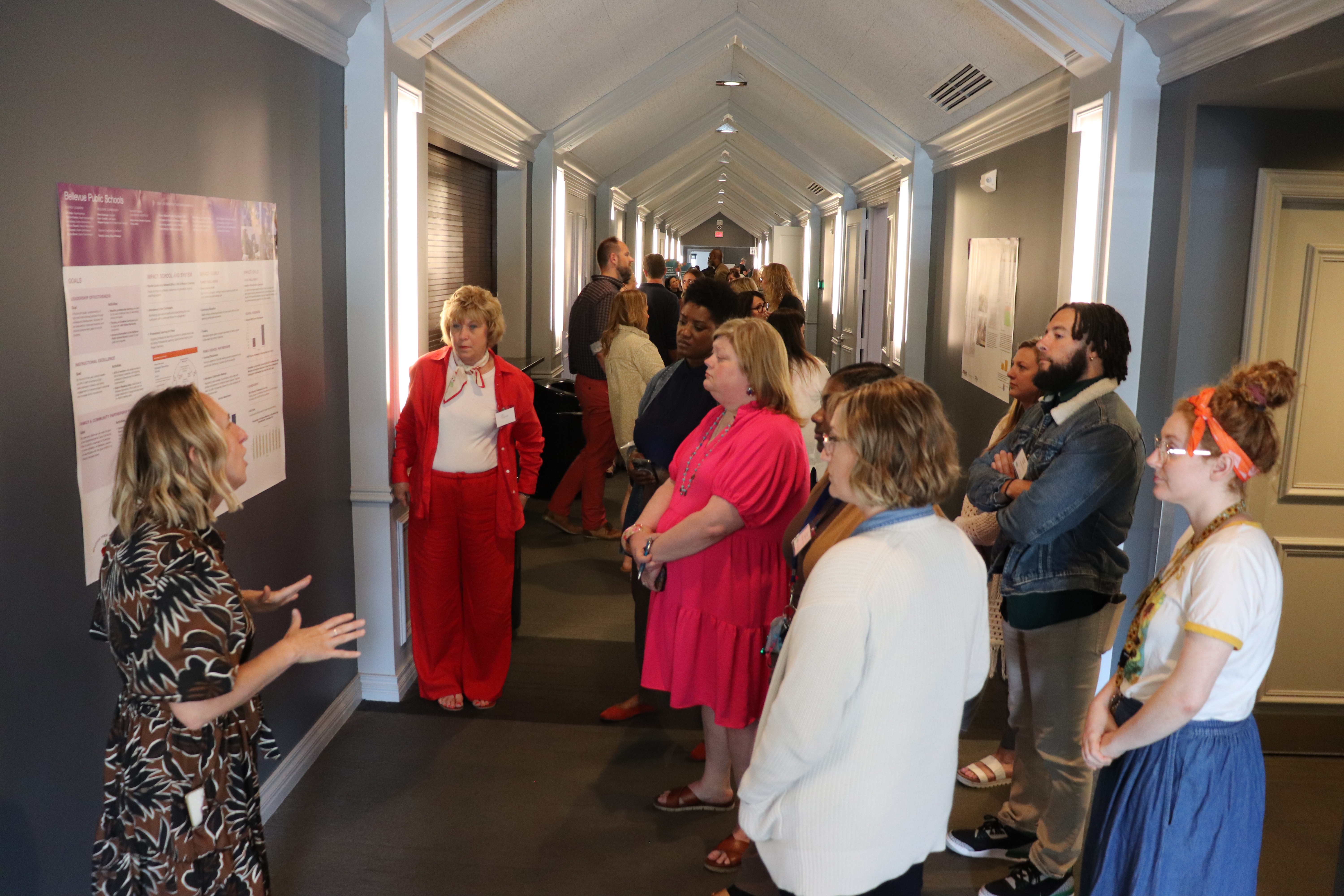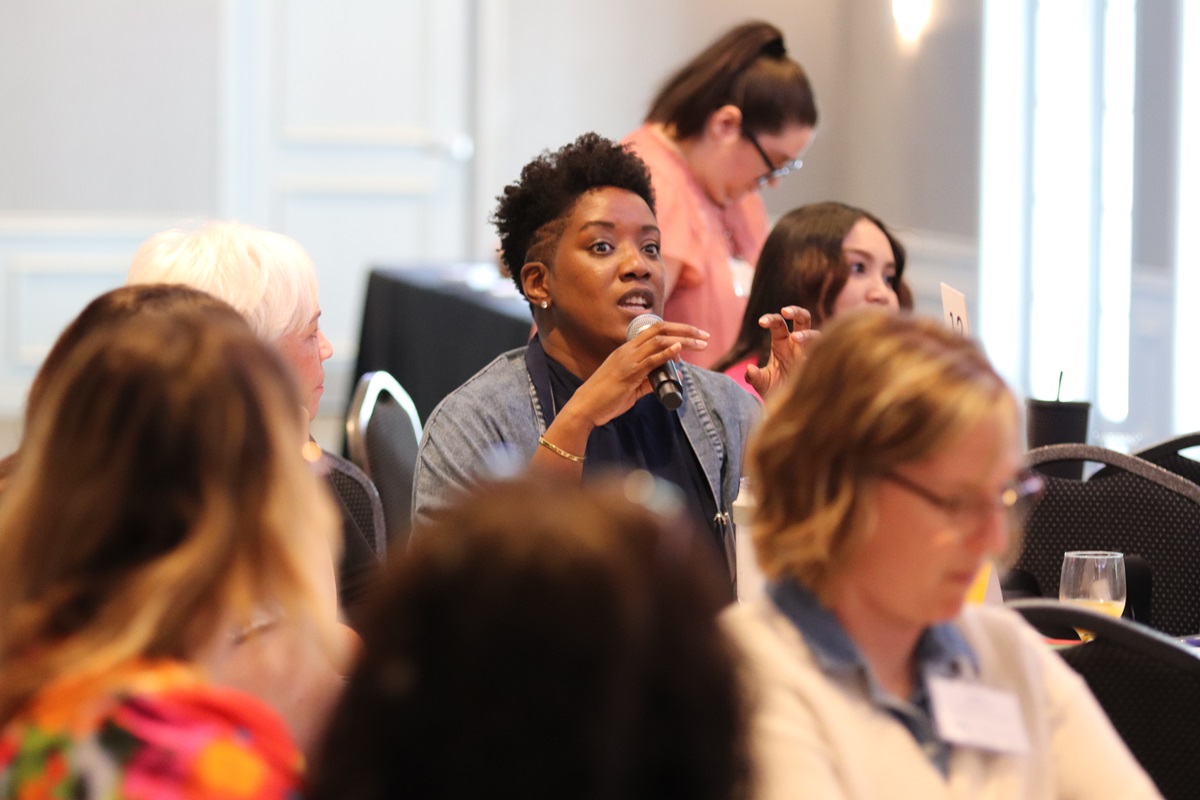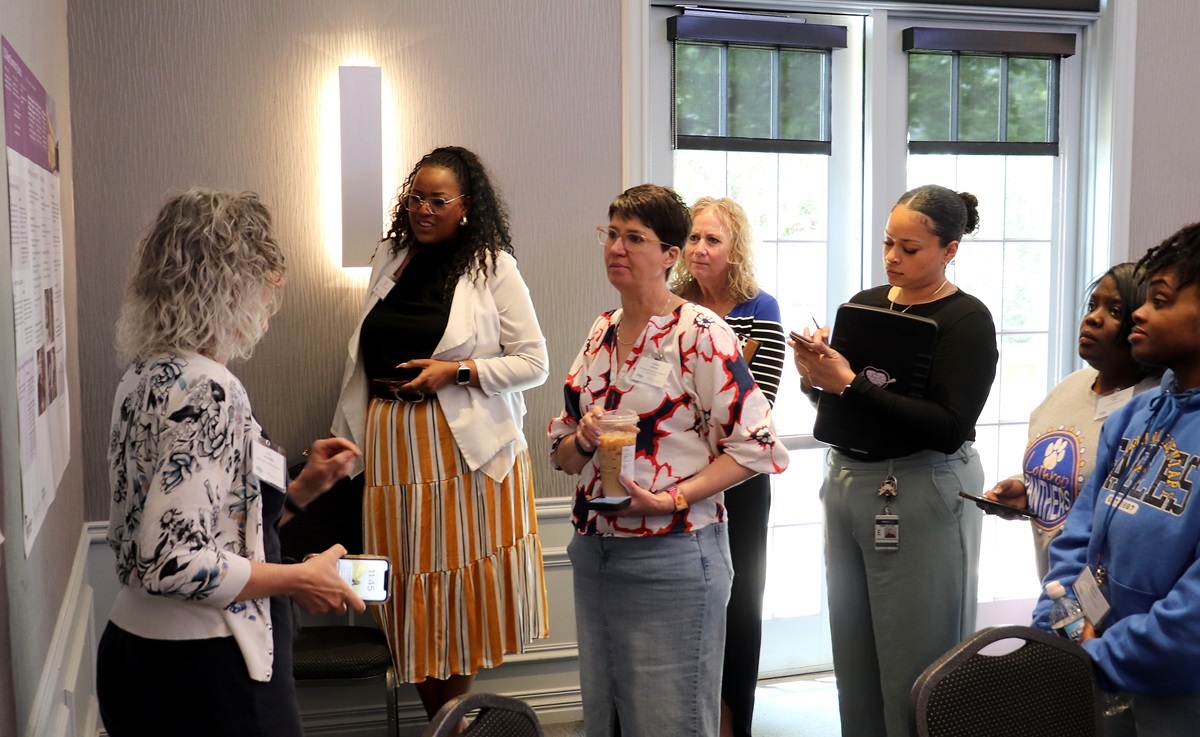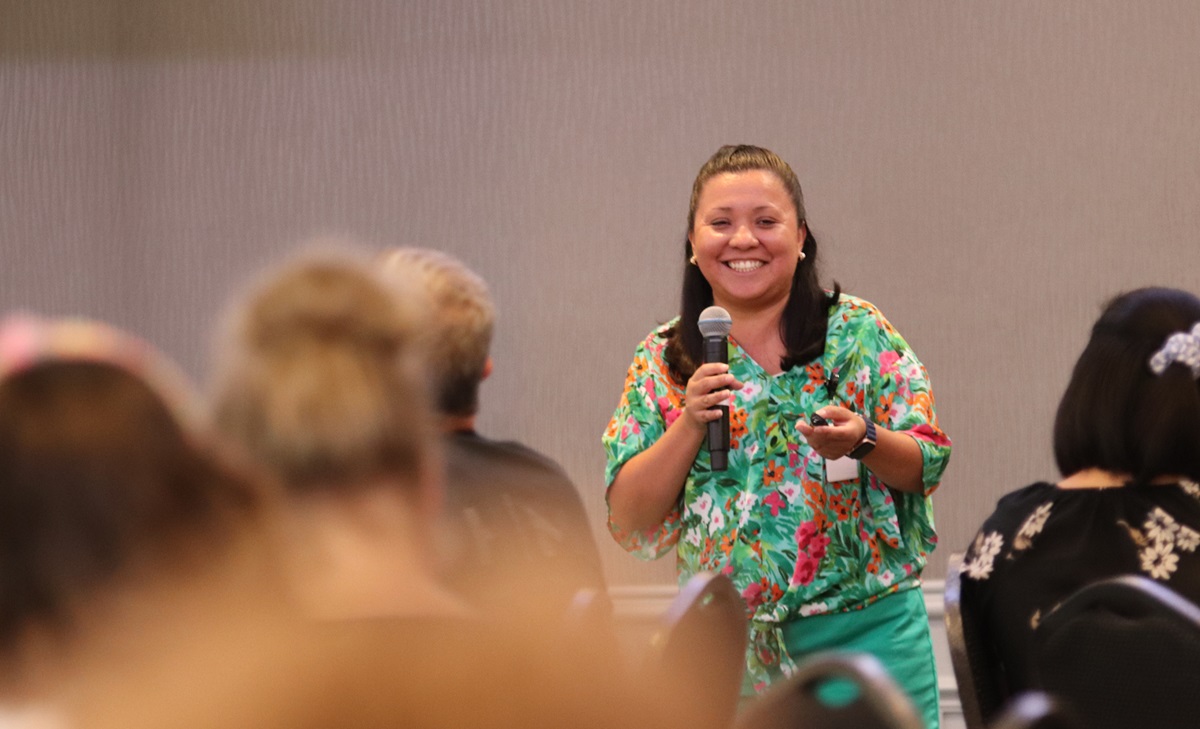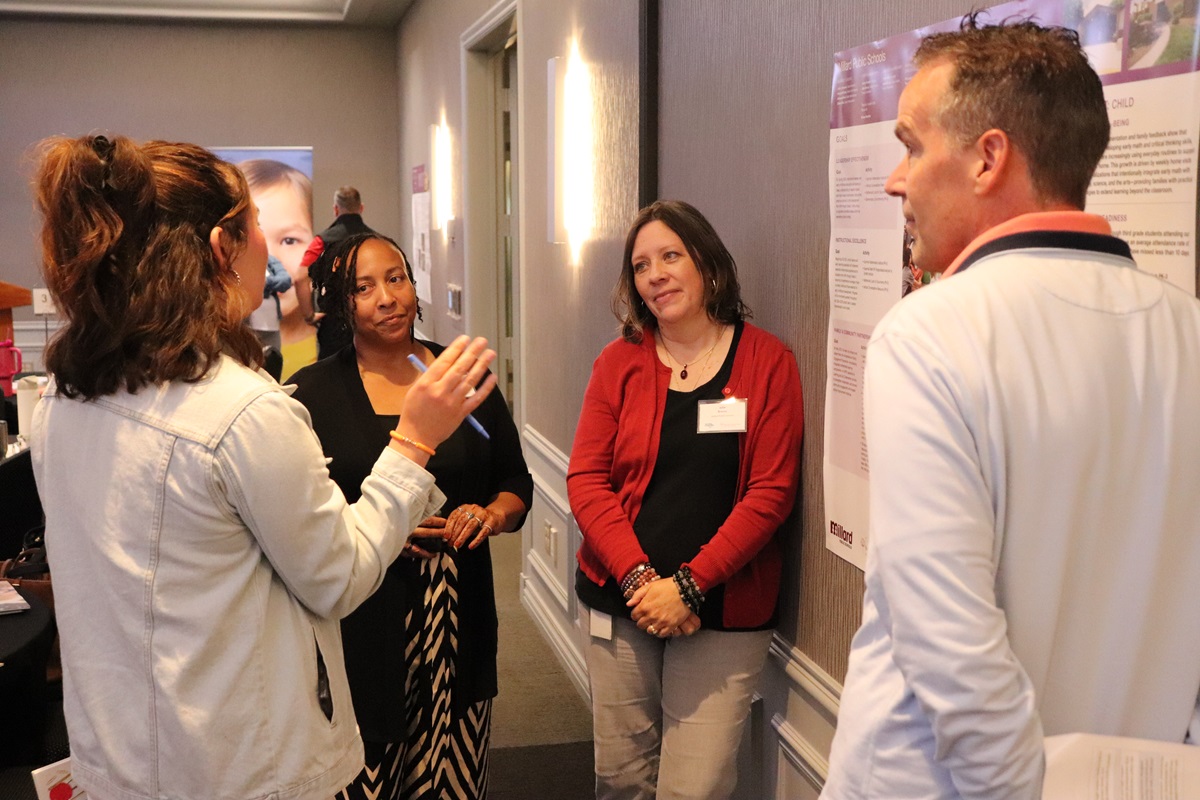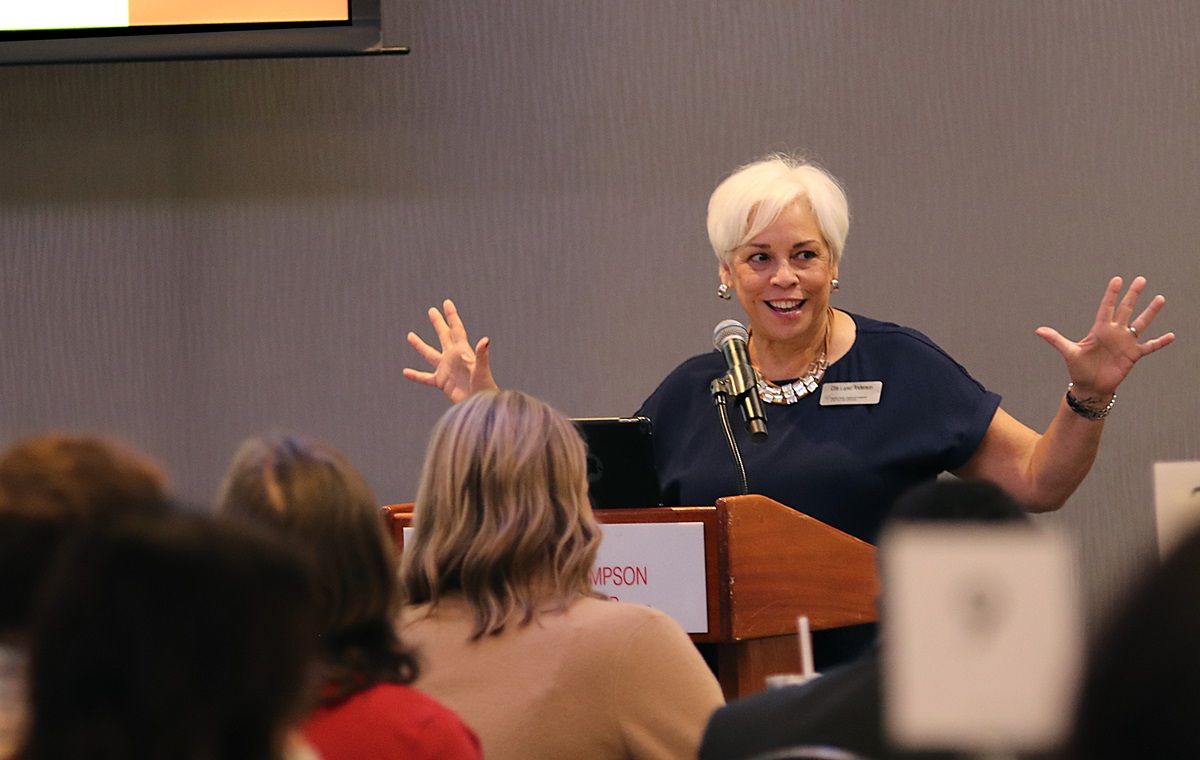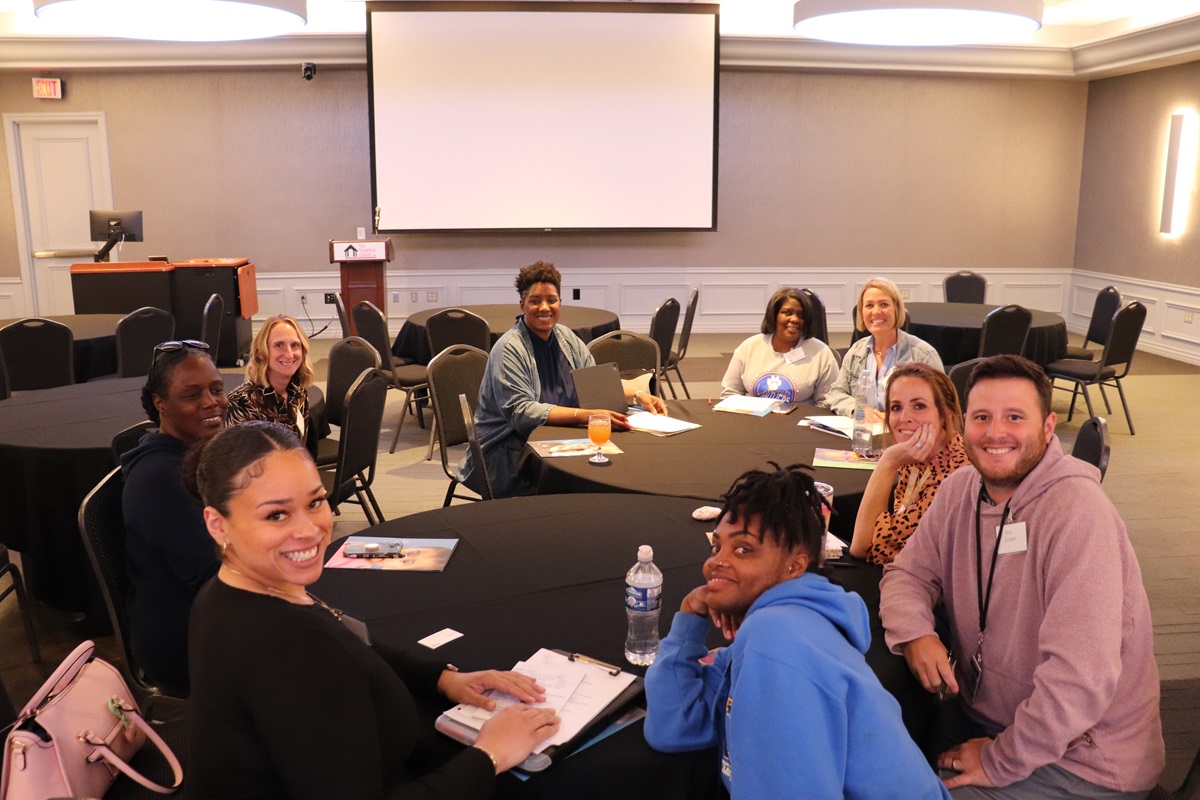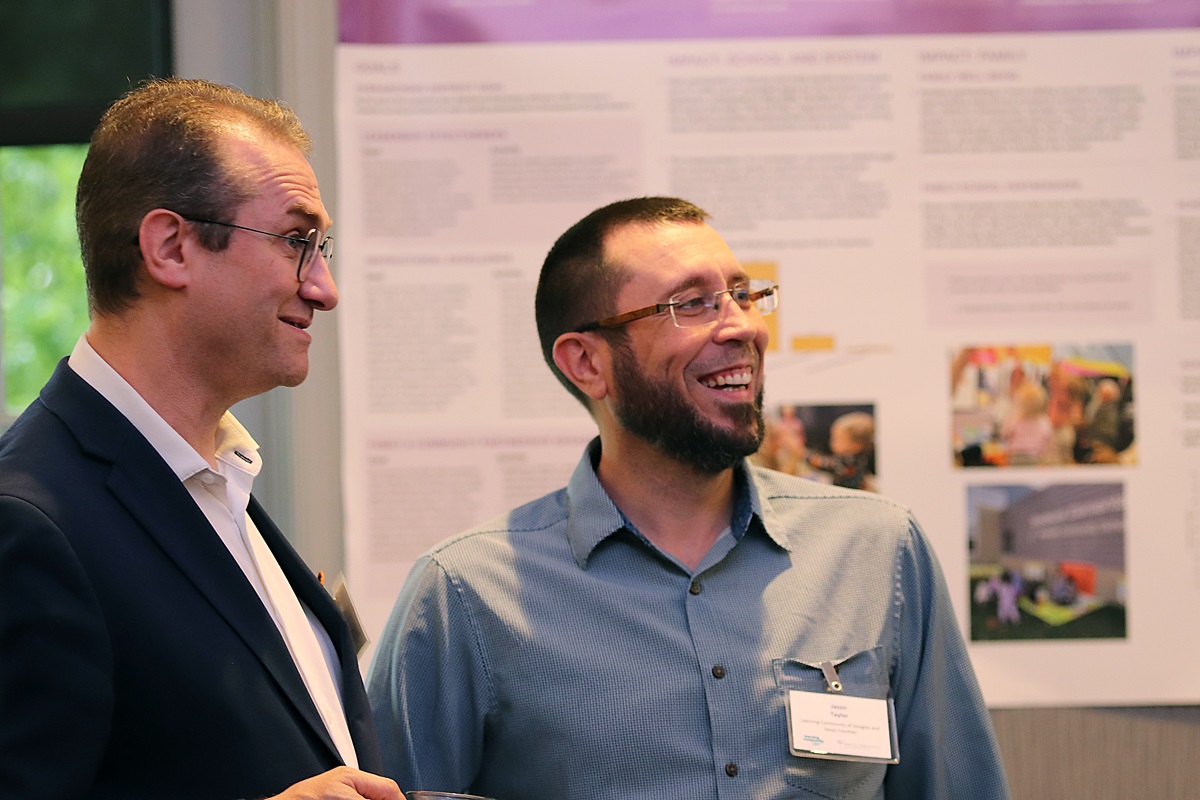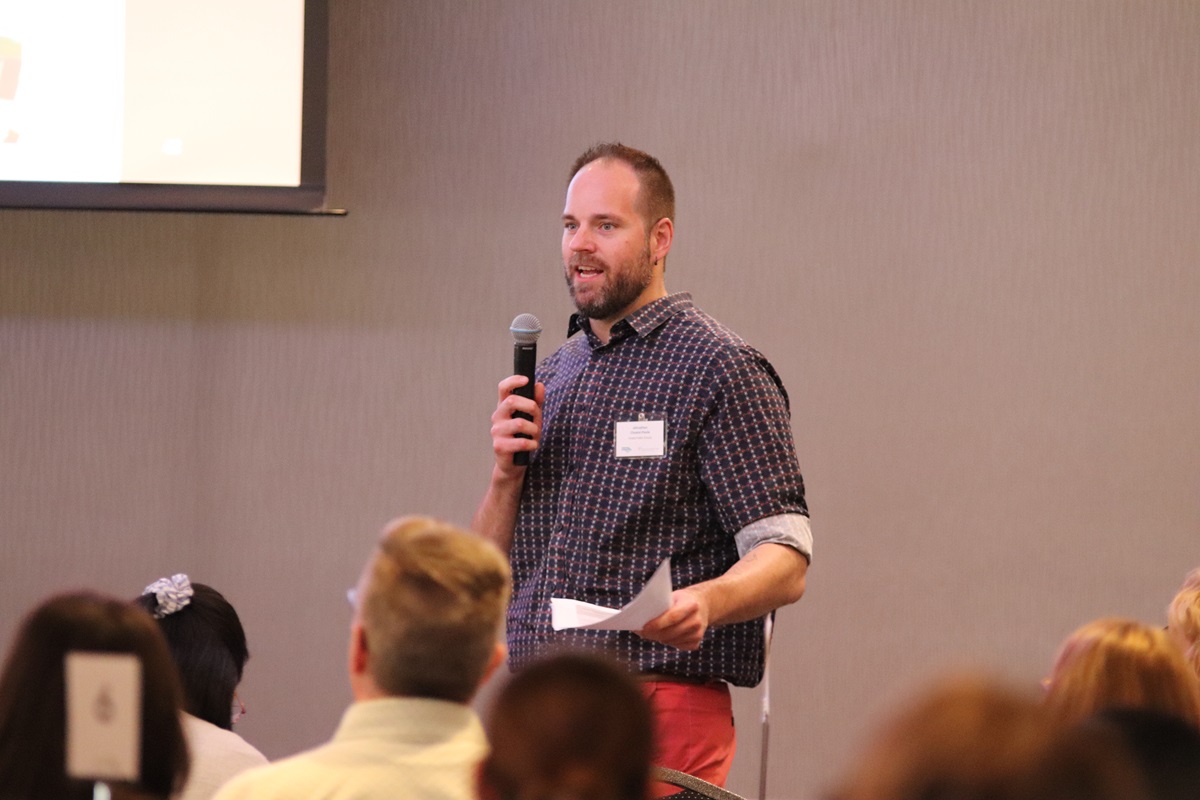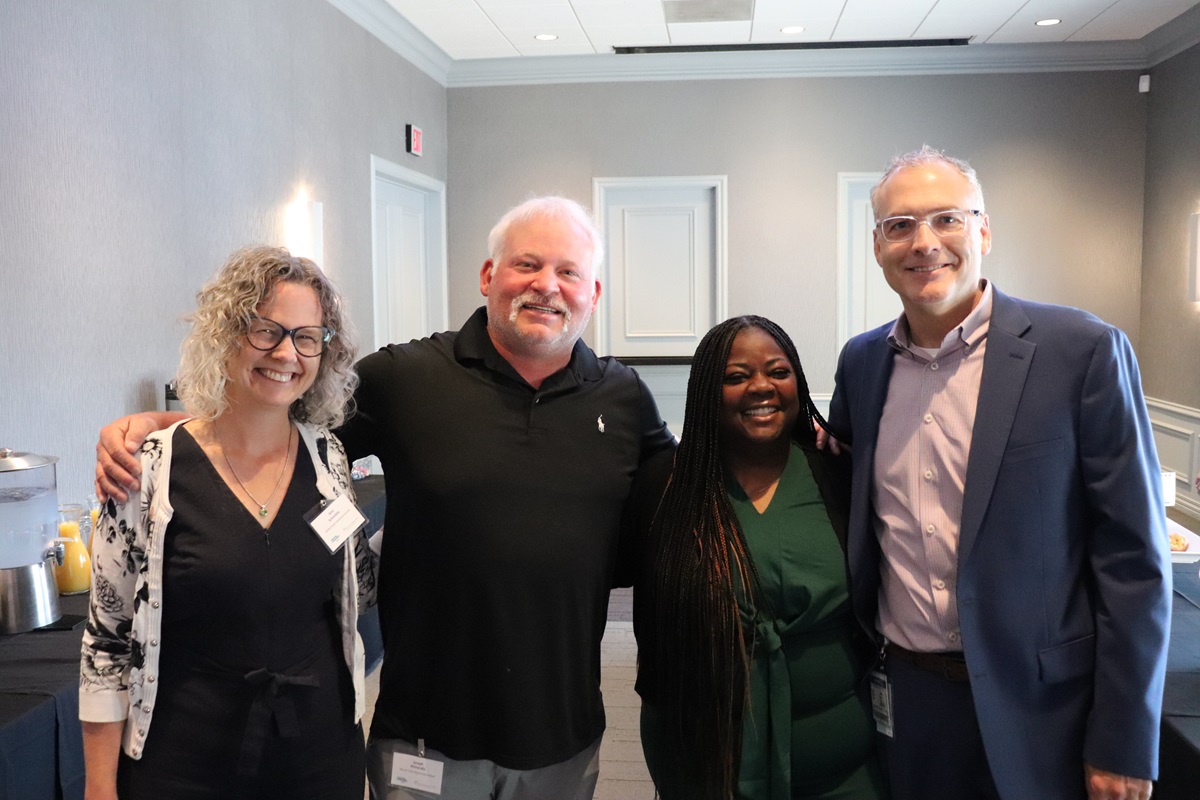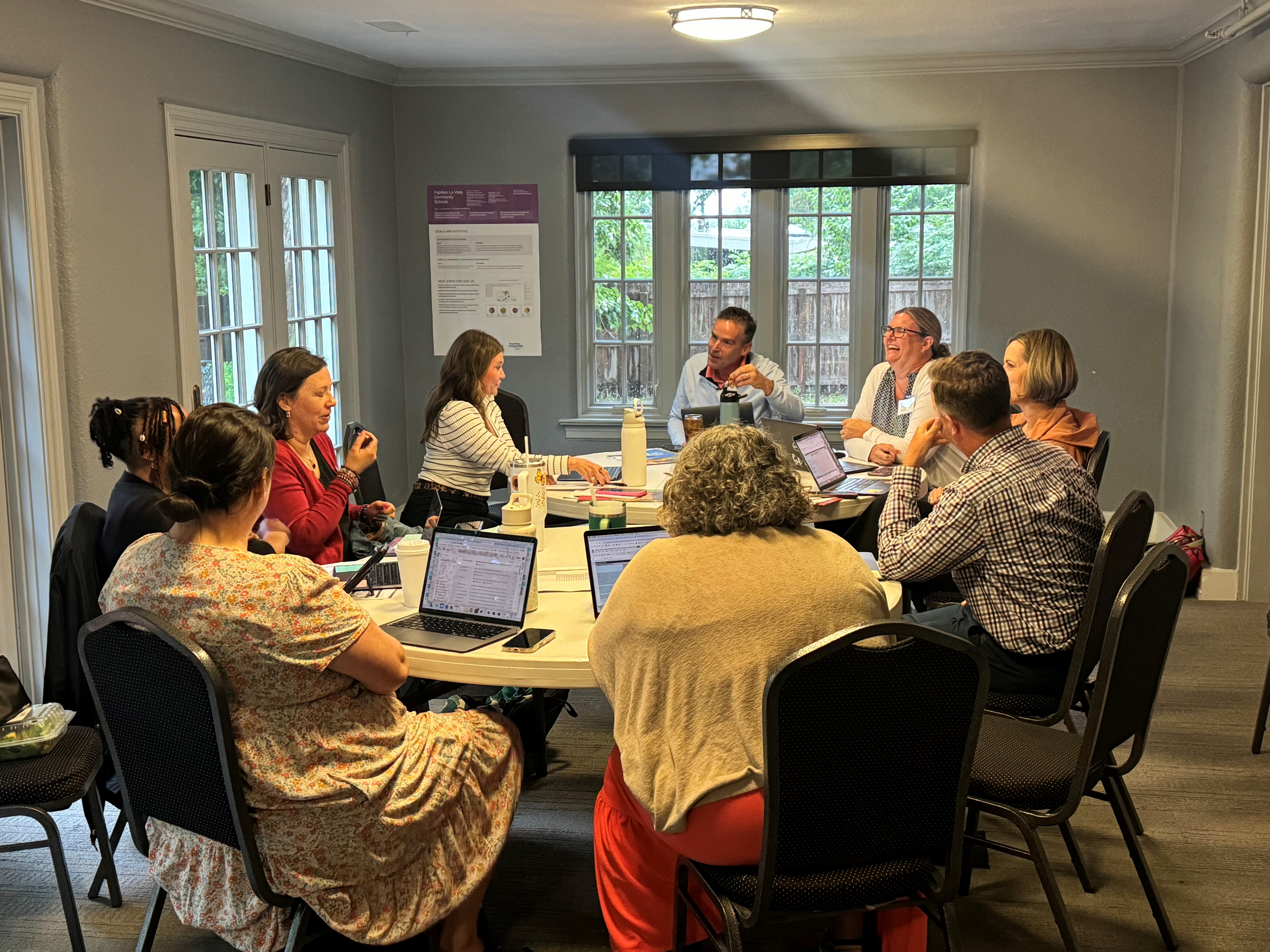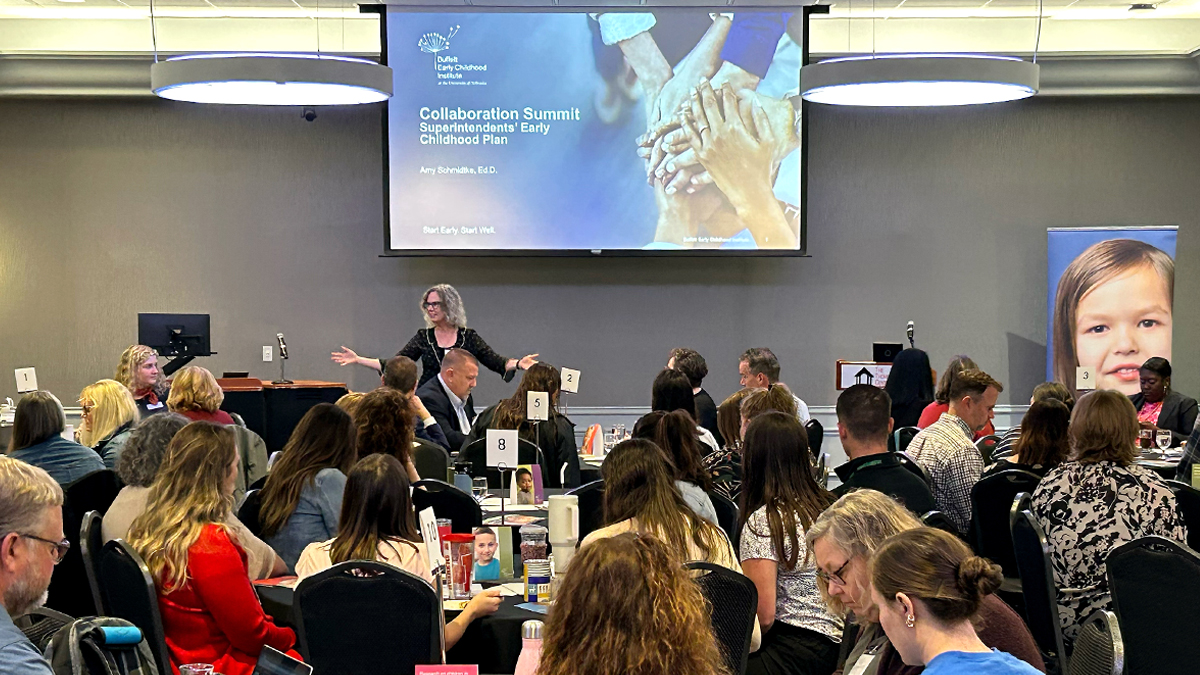
Over two days in June, leaders from nearly a dozen school districts in the Omaha metro gathered for early learning collaboration summits led by the Buffett Early Childhood Institute at the University of Nebraska.
Through poster progress walks, spotlight sessions, and dedicated planning time, participants shared early learning success stories from their schools and prepared for the upcoming school year.
This high-level work is part of the Superintendents’ Early Childhood Plan, a collaborative effort of the 11 school districts in metro Omaha that make up the Learning Community of Douglas and Sarpy Counties to develop early childhood programs, especially for children living in poverty.
“There are so many different people in different roles working together in this,” said Amy Schmidtke, the Buffett Institute’s director of educational practice. “Thats how you get momentum, that’s how you get energy, that’s how you get sustainability.”
Educators are learning what’s working in other districts, using data to measure outcomes, and ensuring early childhood education is infused within schools, not siloed. Here’s what we observed on June 3 and 9:
Districts want to learn from one another
Part of the Superintendents’ Plan is the School as Hub approach—the idea that schools can serve as a “hub” to connect children and their families to resources within and beyond school walls. Ten schools in six districts participate, impacting more than 2,800 children in PreK to Grade 3.
Several districts have started extending parts of the School as Hub approach to more elementary schools.
“Whenever we meet with other principals (across the Westside district), they are always looking at us to see what can be replicated without being a School as Hub (school),” said Brian Stephens, the principal of Westbrook Elementary in Westside Community Schools. “Other buildings are taking these (initiatives) on in a different form and with different resources.”
For the summits, schools and districts presented posters highlighting school data and ongoing initiatives.
Millard shared high attendance rates at its two School as Hub schools and Bennington mentioned its new early childhood staff handbook. Ralston touted its Newcomers program at Mockingbird Elementary, which started in January to welcome dual-language and immigrant families.
“When you see those different things happening across districts, you can say, ‘Well that’s a great idea. We can do that at my school site. We can do that at my district,’” Schmidtke said.
Family engagement is key
Schools are trying different tactics to engage more deeply with families.
Gretna invited preschool families to Vala’s Pumpkin Patch and the local fire station. At Westbrook Elementary, younger siblings can play together at school pick-up, and Belleaire Elementary in Bellevue drew more than 500 people to a family literacy night.
Douglas County West Elementary launched a Falcon Family Cafe where families can learn about curriculum resources and school updates over breakfast.
Early learning can’t be siloed from the K-12 system
Staff from districts like Omaha, Westside, Gretna, and Elkhorn said it can be easy for early childhood education to operate in its own silo when the focus in elementary schools has traditionally been on Kindergarten through Grade 5.
Omaha Public Schools has launched a “moonshot”—all children reading on grade level by 2030. But there are separate literacy curriculums for early childhood and K-6 classrooms.
“How can we include (those staff) in professional learning?” one OPS attendee asked. “Can we all focus on language development?”
Bennington, OPS, and Gretna are also trying to bridge the gap between elementary schools and neighborhood child care programs to ensure smooth transitions to preschool and Kindergarten.
Whitley Hettenbaugh, Ralston’s elementary special education coordinator, thanked the Buffett Institute team for their coaching and consultation.
“You’ve empowered our teachers so much, to look deeper into what more we can all do to pull our families in to develop those skills,” she said. “Learning just doesn’t happen at home, it happens everywhere.”


